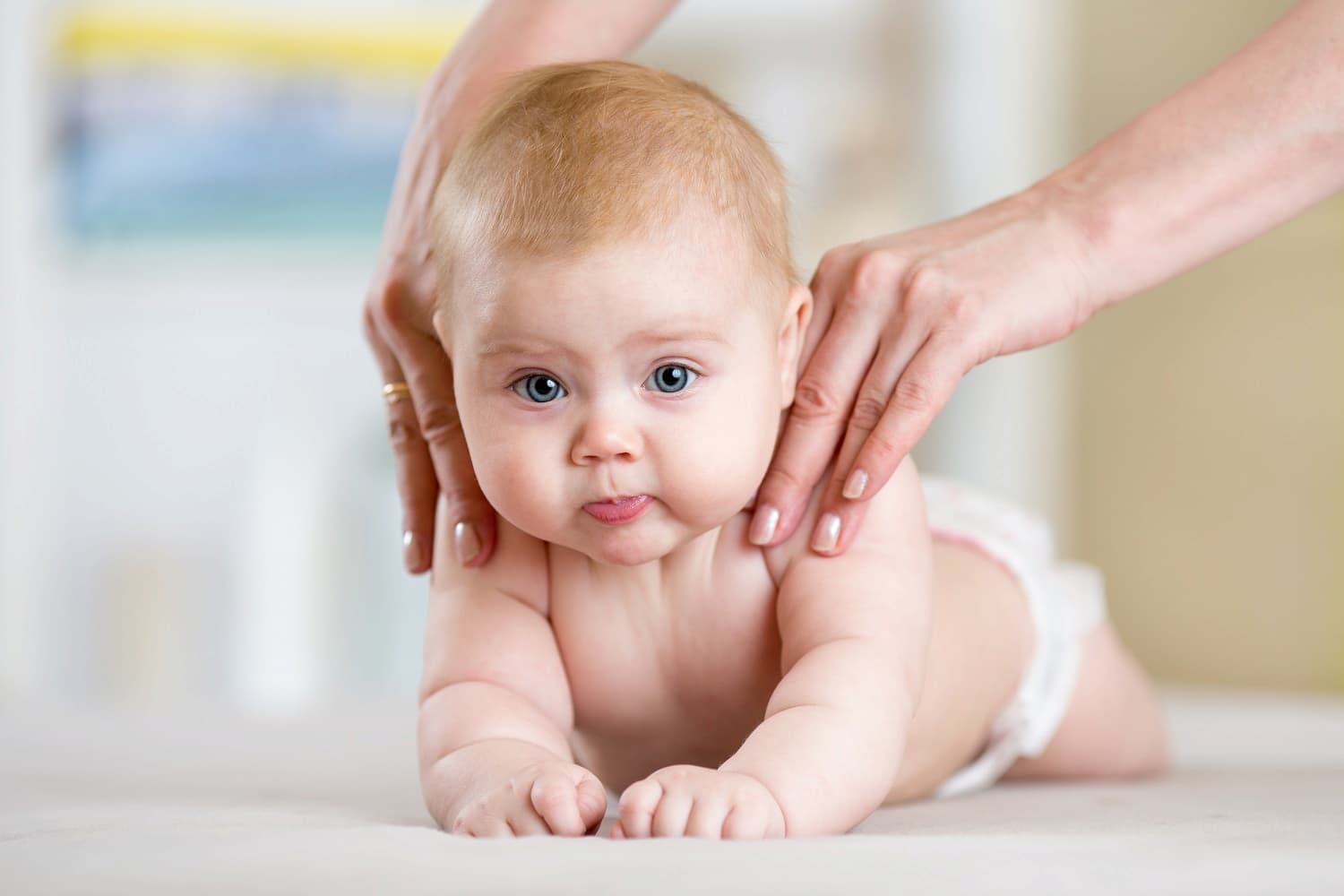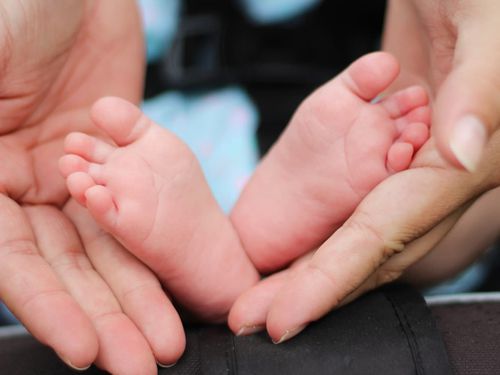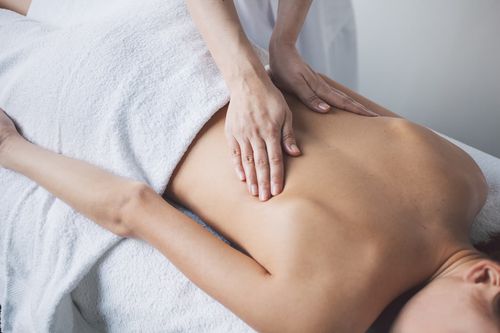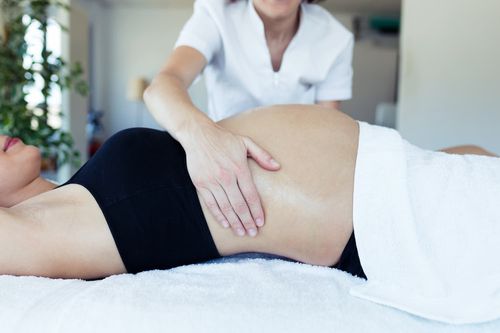What is an Infant/Baby Massage?
Infant/baby massage involves the gentle and rhythmic stroking of the baby's body using the hands. It is an excellent way of gently nurturing and spending time with your baby. You can use hypoallergenic oils and moisturisers to let your hands glide smoothly over your baby's skin and stimulate their ankles, wrists, and fingers.
The soothing massage strokes help stimulate the production of the happy hormone oxytocin in you and your baby. Oxytocin is a type of hormone that makes you feel warm and loving when you are holding or breastfeeding your baby.

How Does Infant/Baby Massage Work?
You should wait for at least 45 minutes after feeding before massaging the baby as it may cause vomiting if you start too soon. Pay close attention to the baby's mood while performing the massage. If the baby appears calm and content and has a steady gaze, it means that he or she is enjoying the massage. But, if the baby is turning his or her head away, or her arms become stiff, it means that she doesn't like it or has had enough massage.
Some types of infant massage start with the feet and legs and move all the way to the chest and back. Others start from head to toes. Among the most common techniques used in an infant/baby massage are the "I Love You" stroke, facetime stroke and milking the leg stroke.
To ensure a soothing infant/baby massage, follow these basic steps:
- Set up a warm room with a calm atmosphere
- Use gentle touch when massaging
- Slowly stroke and knead each part of the baby's body
- Stay relaxed
- Watch how the baby responds to the massage
What are the Benefits of Infant/Baby Massage?
An infant/baby massage not only nurtures the physical wellbeing of your little one but also strengthens your connection with each other. Research suggests that this gentle massage offers various health benefits such as the following:
- Encourages a healthy bond between the parent and the baby
- Helps the baby to relax
- Promotes longer and better sleep
- Improves baby's immune system
- Positively affects the hormones to reduce stress among babies
- Reduces crying
- Regulates the digestive, respiratory and circulatory systems
- Supports the production of endorphins
- Relieves pain and discomfort from gas and colic, congestion and teething
- Boosts muscle development
Several paediatric clinical trials also revealed that infant/baby massage promotes growth among premature babies. Massaging a preterm baby for at least five minutes every day increases their weight, bone strength, skin elasticity and production of red and whilte blood cells.
What Can You Expect From Infant/Baby Massage?
Practising infant/baby massage is a great way to enhance your emotional bond with your baby and support their physical development. However, unlike adults who always find a massage irresistible, babies enjoy it depending on their mood. That means the massage doesn't have to be done continuously. If your baby seems restless or irritable, you can stop and resume later once they're in the mood for it again.
Before you begin your massage session with your baby, take off any jewellery on your hands and wrists. Also, see to it that the room is warm enough before undressing your baby down to his or her diaper. Spread a soft blanket on a flat surface then lay the baby on it. Be sure that you also make yourself comfortable and support your back.
During the massage, speak or sing softly to your baby. Babies may not be able to respond verbally, but they can understand what their parents are telling them. Giving your baby daily massages for at least 10 to 15 minutes will benefit them in many ways so make this a part of your daily routine.
Is Infant/Baby Massage Safe?
Infant/baby massage is a safe and healthy way of relaxing your baby and promoting their physical, emotional and psychological development. Parents who have trained with a certified infant massage therapist shouldn't be scared of potentially hurting their babies because none of the techniques taught to them are designed to hurt babies. Observe these safety tips when massaging your baby:
- Avoid using massage oil on the face
- Avoid massaging the top of the baby's head
- Avoid using deep massages
- Keep the massage very short
- Always stop if the baby shows signs that he or she has had enough
- Avoid using massage oils with harsh ingredients
- Be careful in picking the baby up following the massage




